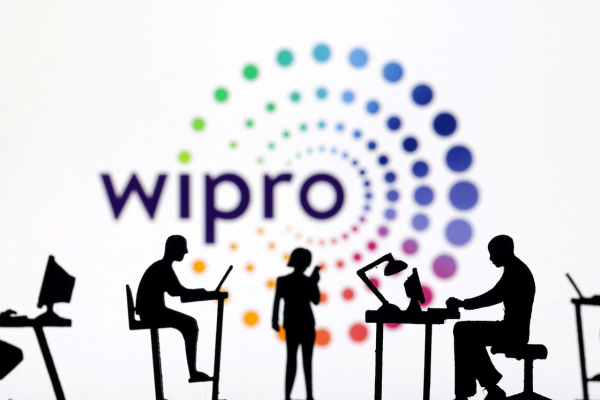ESG: reporting on emissions

Chris Maclean at True describes the technology bridging the gap between ESG reporting and competitive sustainability action
Following COP29’s renewed call for stricter ESG requirements and significant financial backing worldwide, it is clear that investors, customers, and regulators are no longer satisfied with vague commitments and glossy sustainability reports. They demand verifiable action, concrete results, and transparent reporting.
Yet within this challenge lies a significant opportunity. Leading companies are discovering that effective ESG reporting delivers more than compliance. It creates operational efficiency, attracts investment, and opens doors to new opportunities. While some businesses still view sustainability as a burden, others are leveraging technology to turn it into their secret weapon.
The great knowledge gap
Recent research from True, powered by Open Energy Market, exposes a concerning disconnect in how business’s view and approach sustainability. Despite an overwhelming confidence in their ability to integrate renewable technologies, with 90% of leaders expressing optimism about their capabilities, the reality tells a different story.
When asked about their understanding of crucial metrics to achieving sustainability, such as Scope 3 emissions – which often represent the largest portion of a company’s carbon footprint – only one in five (20%) of businesses would rate their organisational understanding as moderate.
This disparity between perceived readiness and actual expertise creates a dangerous blind spot. As businesses rush to embrace sustainable innovations, many are doing so without the fundamental knowledge needed to make informed decisions. The result is often inefficient investment, missed opportunities, and sustainability initiatives that fail to deliver meaningful impact.
Breaking down barriers
The journey to sustainability often faces common obstacles. The research highlights some of the key barriers holding businesses back from achieving their sustainability goals including a lack of time to focus on sustainability (24%), and extended approval timelines (25%) delaying the process even further, as well as internal resistance to change (21%).
Yet, technology is emerging as the critical bridge to close the gap between sustainability ambition and meaningful action.
Modern platforms are transforming how businesses approach their environmental initiatives, converting what was once a burden of manual data collection and reporting into an automated, insight-driven process. This technological transformation is turning what was once a burden into a strategic advantage.
Time is on your side
With increasing focus on making sustainability a competitive advantage, time is of the essence.
Time constraints often prevent organisations from prioritising sustainability. Innovative technologies, such as automated emissions tracking and real-time monitoring tools, eliminate manual tasks, giving teams the bandwidth to focus on strategy rather than data entry.
The most effective platforms offer dynamic energy modelling, allowing businesses to identify inefficiencies and optimise energy usage instantly. These tools not only reduce the time spent on data collection but also accelerate decision-making by providing actionable insights in real time. With less time wasted on administrative tasks, teams can allocate resources toward implementing impactful strategies.
By overcoming time barriers, businesses can move faster and more confidently toward their sustainability goals, proving that efficiency and environmental responsibility can go hand in hand.
Breaking down siloes
Organisational siloes and confusion about who has ownership of sustainability strategies have historically hampered sustainability efforts. Interestingly, the data shows almost two in ten (18%) organisations identify confusion over decision-making as a major obstacle to implementing sustainable energy practices.
Technology dismantles these siloes, creating a single platform which houses all the data, enabling finance, sustainability, and procurement teams to work from a shared space and make aligned decisions.
This unified approach is crucial as businesses navigate increasingly complex sustainability requirements while maintaining commercial viability. Modern platforms facilitate cross-functional collaboration, ensuring that sustainability initiatives align with broader business objectives and have buy-in from all stakeholders.
The ROI revolution
For many businesses, the road to sustainability is paved with financial concerns. With the majority (84%) of companies prioritising cost savings over carbon reduction, technology plays a vital role in bridging this gap by demonstrating the financial benefits of environmental initiatives.
Leading platforms now offer sophisticated capabilities that go beyond basic monitoring, providing precise energy usage forecasting, renewable energy integration modelling, real-time progress tracking, and automated compliance reporting.
These tools make sustainability more manageable and transform it into a driver of business value. By providing clear ROI metrics, technology helps sustainability teams build compelling business cases that accelerate approval processes and demonstrate the commercial benefits of environmental initiatives.
Leading the change
The competitive advantage of early adoption is already evident. Forward-thinking companies that have already taken the time to invest in both technology and expertise are pulling ahead, creating a widening gulf between leaders and laggards.
In the hospitality sector, for instance, 51% of businesses have already deployed advanced forecasting and monitoring systems to optimise their energy usage, while 43% of data centres have integrated similar technologies to drive efficiency.
These early adopters are reducing their environmental impact while building competitive advantages through lower operational costs and enhanced market positioning.
The path forward lies in integrated platforms that unite financial and sustainability data. Organisations should search for solutions that provide a comprehensive view of both environmental impact and commercial performance, enabling businesses to make informed decisions that serve both purposes.
From ambition to action
As the race toward Net Zero accelerates, the ability to leverage technology effectively will determine which companies can turn and maintain commercially viable and competitive sustainability strategies. Businesses that embrace digital platforms to understand ROI and optimal pathways to execution will be better equipped to turn ambition into action, creating a sustainable competitive edge.
While not a silver bullet, technology not only simplifies compliance but also empowers organisations to innovate, collaborate, and measure impact effectively. By breaking down barriers and unlocking new efficiencies, it transforms sustainability from a compliance-riddled challenge into an opportunity for competitive growth.
Now is the time to act. By investing in the right tools and expertise, businesses can not only meet ESG requirements but also thrive in an increasingly sustainability-focused market.
Chris Maclean is CEO at True, powered by Open Energy Market. For more information driving a competitive edge through energy procurement and net zero technologies, visit www.truezero.tech/
Main image courtesy of iStockPhoto.com and oss Tomei

Business Reporter Team
Most Viewed
Winston House, 3rd Floor, Units 306-309, 2-4 Dollis Park, London, N3 1HF
23-29 Hendon Lane, London, N3 1RT
020 8349 4363
© 2025, Lyonsdown Limited. Business Reporter® is a registered trademark of Lyonsdown Ltd. VAT registration number: 830519543





